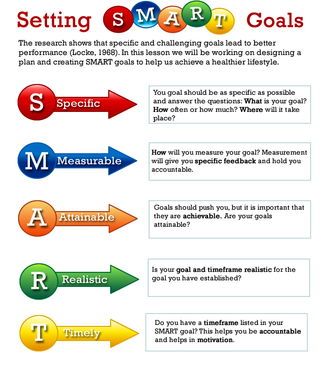 The last couple nights for us have been all about taking care of a sick 1-year old. And last night after the 3rd or 4th time being vomited on, I couldn't help but realize: Parenting is messy. And it doesn't stop when your kids get older, the messes just transfer. What once meant dirty diapers and colic turns into patterns of rebellion and sin, which then turn into first accidents, speeding tickets, and overdrawn bank accounts. Even when children become adults, it can still be messy as they make decisions that don't reflect what you taught them growing up. Let's face it, as parents we spend much of our energy pouring into our children with a faith that we know has the power to transform their hearts. And when we're confronted with the reality of a world that is set against a biblical worldview, the end result is a mess. Sin destroys the perfect picture God designed for us, where parents pour into their children and a legacy of faithfulness is built. And we're left with how John Piper described their journey through a wayward child: tears. In the messiness of raising children, I want to give three words of encouragement: 1. Cling to your surest hope, Jesus. We can't escape the reality of difficulty, but we can always run to the One who has overcome. Jesus promises to be enough for us. Paul reminds us that His grace is sufficient. When it feels like everything we do is failing, run back to the one who promises that in Him we can find our everything. And from that surest hope comes the answer. Our kids, more than anything else, need to find their ultimate joy and delight in Jesus. 2. Channel your frustration to prayer. One of the hardest things to swallow as a parent is that our own sinfulness shows up in our kids. In them we see all of our best and our worst qualities. And because of that, we get frustrated and we wonder why they don't "get it." We forget that they are fallen, as are we, and because of that they'll do things that hurt, frustrate, or even disappoint us. And when those moments happen where it feels like the walls are caving in, channel all of that energy to prayer. Prayer not only for them but also for yourself. God has often used our kids to expose my own sin, and in those moments of frustration I've seen a bigger call: repent. 3. Center your home on the Gospel. Perhaps the best word to describe the message of the Gospel is "Freedom." And the result of being transformed by the freeing message of the Gospel is we turn to others and plead with them to let Jesus break their chains. Our homes are no different. If Jesus has set us free, our homes should reflect that freedom. Because God has forgiven us by grace in Christ, are we as parents and spouses going to forgive each other and our kids because of grace? Are we going to serve each other in a way that only Jesus can empower us to? Are we going to sacrifice our finances for the freedom of others through giving? And are we going to model before a confused world what the greatest picture of the Gospel is, a marriage that reflects the beauty of His relationship with the Church? If you're in Murray, our church is hosting a "Workinar" for parents called It's Just a Phase. It's on February 27th from 5:30-8pm. The cost is $30 and it's worth your time and money to be there.
1 Comment
Last week Sports Illustrated's Monday Morning Quarterback released an incredible article that gave a behind-the-scenes look at what goes into an NFL head coaching interview. Even though the average tenure of a coach is 38 months, the average salary of nearly $3.5 million and the fact there are only 32 in the world make this an in-demand and competitive process. In these interviews, coaches are given the opportunity to talk about their philosophy, their vision, and how they have grown in their career. Team executives get to ask about personnel issues, the locker room, and overall team culture. Ultimately when a new coach is named, it's the result of a lengthy process of vetting, negotiating, and data analysis.
So far in ministry I've accepted 2 positions, but in the process of those positions interviewed with at least a couple dozen churches. Interviews provide a great way for a search committee to get to know you in a focused time, and for the candidate to get a sense of who the church is and what they're like. It's not the only step in a healthy search process, but it is a necessary step. Here are 10 Do's and Don'ts for effective interviews. 1. Don't assume you have all the answers - With all our preparation and experience in ministry, it can be easy to assume we can take what we know and what we've done and apply it to whatever situation we're walking into. Many times in our ministry our success is due to us staying out of God's way! The difference between an NFL coach and a ministry position is the coach is self-dependent, but in ministry we are Spirit-dependent. He has the answers, not us. 2. Do listen carefully to the search committee - These are volunteers who have been chosen by their church to help find new leadership. The church may be hurting, may feel lost, or have gone through a crisis in leadership before. The search committee represents all of these feelings, and they have a vested interest in finding God's choice for the position. 3. Don't go in with a list of things you'll change - Sadly too many ministry leaders make plans to blow things up before they even arrive. That doesn't make you a "visionary change catalyst," that makes you an idiot. All churches and ministries are fluid and will need change, but you can't determine that until you learn the culture, history, and above all the people. 4. Do ask them hard questions - When you go into a search process, you could be moving your family somewhere. You owe it to them, and to the church, to ask hard questions of the committee. David Prince, a pastor & professor, offers 14 questions to ask a search committee. It shows a prepared committee and a healthy church when they can provide answers to your hard questions, a church that is looking for solid leadership. 5. Don't hide your theological positions on things that can be divisive - In the SBC right now there are a couple of theological issues flying around, but the largest is over the issue of Calvinism. Regardless of your position on that issue (or any number of others like women in ministry, speaking in tongues, or Bible translation), you need to be honest with the committee, and they need to be honest with you about their church's position on those issues. 6. Do your homework on the church, leadership history, and community - Just about every church has a website or social media page. The content on those pages, and how recently it's been updated, can give you a lot of information on a prospective church. Many times these are used as a front door for visitors, so find out what they want them to know about. Check out the demographics and nature of the community (is it middle class or poor? ethnic or white? urban or rural?) to see if it's a potential fit for you and your family. 7. Don't be scared to say "I don't know" - I'll admit there have been several times in interviews I was asked questions that I honestly had no idea what to say. I can remember a few times I winged it to try to say something, and others I told them I didn't know and would have to think about it. Most of the time committees are patient, and you should be with them when they say they don't know the answer to something. If we're comfortable in our skin and in our place in Christ, then we can be ok not knowing everything. 8. Do find out what happened to the last guy - Unless it's a brand-new position, you're going to take over for someone who resigned (or was fired). It matters because you're going to inherit the ramifications of that transition. I took over for someone who had been dismissed and had to deal with the fallout from those who vehemently disagreed with that move. I've also taken over for someone beloved, and couldn't do anything right for a long time because it wasn't like how he did it. 9. Don't proceed without involving your spouse and family - Moving in ministry is a lot more than taking a new job. It's the only field that depends on your spouse and family like no other can. That's why it's so important for you as a candidate to involve your spouse as much as possible. Trust the spirit of wisdom God has given that He will lead both of you. It will become their church too, where they go to meet with God in worship and other believers in fellowship. If you have kids, it will be the church you trust your kids with on a regular basis. 10. Do make sure you soak everything in prayer - I saved this for the end because it's the last thing I want you to remember. Throughout the entire process, it needs to be soaked in prayer. Pray for yourself to know what God wants, your family to recognize God's plan, your current church because of the gap you'll leave, and the potential new church that God would give a healthy and effective ministry there. Hopefully you're dealing with a search committee that is committed to prayer too, because when everyone is in tune with the Spirit the right answer can be obvious to everyone. What interview advice would you share?  This is a guest post from Lance Mauldin, who serves as a CMI for the Murray State University BCM. Lance is a MSU grad, avid Florida Gator fan, student at Southeastern Baptist Theological Seminary, and a college ministry leader at Westside Baptist Church. #1) I am not as smart as I thought. I used to think I had a pretty good grasp on what the Word had to say. But I was completely blown away with what God had in store for me. Seminary is tough, but it's definitely strengthened my walk with Christ. #2) I need to stay humble but hungry. One thing I knew I didn't want to be when I got to seminary was someone with a big head and a small heart. There's lots of information in the Bible, but I didn't want to become arrogant or condescending to others because of my studies. That's why it's so important to keep our focus on the Gospel and how we can grow in our knowledge and understanding of it. #3) Seminary is not necessary. Yeah. I just said that. I could have picked up any book I read this semester on my own from Amazon, met with some other pastors and learned ministry from them, and not spent one dime on tuition. Being a seminary student isn't what's set me apart for the ministry. A loving local church did that this year when they ordained me. That's the cake, that the local church sends ministers. Seminary is the icing. It's helped affirm, support, and prepare me for serving the church, not the other way around. #4) Seminary helps. I think the best thing about seminary is how it's affirmed and tested my faith. I'm not just looking at a narrow set of beliefs, I'm pushed to consider how others look at and interpret the Bible, and then figure out how it meshes with the Truth. It's helped me to identify and engage with the false teaching that's everywhere today. #5) I have to apply the knowledge. If everything I learn in seminary stays in my head and never gets applied, it's useless. It'd be like seeing a stop sign, reading what it say, and then blowing through it into oncoming traffic. That's what Jesus is after in the Sermon on the Mount, we have to apply what we know in order to truly live out the Gospel.  #6) Jesus Christ is the main thing. There's so many guys who want to be the next Piper or Spurgeon it seems. And when they try to be something they're not, they're really taking their eyes off the prize: Jesus. That's why I keep coming back to Philippians 2, especially v. 5 where we're to have the mind of Christ in everything we do. I'm sorry young theology debater guy, there's much bigger things out there than arguing the extent of the atonement. Our work as seminary students and as ministers is to reflect Jesus everywhere we go so that the Gospel might be proclaimed. #7) The Word of God is precious. If anything, my time in seminary has shown just how much a treasure the Word really is. It changes lives because it really is God's Word. It points out our sin, points to the cross, cuts to our soul, and is living and active now just as it was in Acts. It's the basis of our faith, it's reliable, and it's something we should read and learn as a regular part of our spiritual growth. I've learned the best practice of all is to not neglect my time in the Word with my Savior. Scott's note: Lance I'm so proud of you for all you've done and how God has worked in your life. I really believe He has some big things in store for you! Now, get back to reading!  Earlier this week I wrote about how important it is for leaders to have BHAGs (Big Hair Audacious Goals), that are huge visions and dreams about what could be possible with a God sized faith. Ready for me to burst your balloon? You can't live in BHAG world forever. You need to come back to earth with SMART goals. SMART goals are Specific, Measurable, Attainable, Realistic, and Timely. They're much more specific, grounded, and realistic than the wild and crazy BHAG dream you might have. Why do leaders need to make and keep SMART goals? 1. Goals without structure are wishes - SMART helps give a structure to what we want to accomplish as a leader. When we build SMART goals into our leadership, we're giving a plan for how we want to accomplish our goals, and we're being very specific about what we want to accomplish. Simply saying "We want to make disciples all over the world!" sounds like a great goal, but really it's a wish. There's no way to go about doing that. A SMART goal for that would be something like "We're going to make disciples in our community, involve with church plants in ____, and partner with missionaries in ____." Rather than a wish, there's a plan in place with a very specific focus. 2. SMART goals aim at something you can hit - Too many times leaders try to go after something that's not realistic or attainable. SMART goals are things that can be accomplished in a limited period of time with reasonable effort. In doctoral studies, the best advice I got on writing my dissertation was "Pick something you can write about and finish in a year." That advice helped our entire class focus on something that we could accomplish, not some pie-in-the-sky dream of changing the world. It's January so everyone is in "Lose Weight" Resolution mode, and too often people set a goal that can't be reached, like losing 30 pounds in a month or something like that. 3. They develop a winning cycle - There's a really funny scene in one of the Major League movies where the manager comes in and says "We won a game today, we won a game yesterday, and if we win one tomorrow that's called a winning streak. We've had those before here." SMART goals, because they are attainable, can be measured, and are within a limited timeframe, provide a sense of momentum where wins are regular and expected. When leaders set SMART goals, they're building a series of gradually increasing wins that build on previous goals like a house being built. 4. They create a sense of urgency - Because SMART goals are very specific, have to be measured (against a previous amount or a particular benchmark), and have a limited timeframe, there is a sense of urgency that is natural to them. Building a sense of urgency is important for any leader, especially in ministry, to create a culture of action and change. I love Kotter's approach to leading change, and especially his thoughts on what a sense of urgency is. 5. They develop a plan for accomplishing - SMART goals need a plan if they're going to happen. They need to be focused on a specific focus, have a system for measuring and determining success, be achievable and not something far fetched, be relevant (so a church shouldn't probably set a sales goal), and be timely where there's an end point. All of those factors require leaders to have a plan for accomplishing the goal. They need to be able to backwards plan where they work from the end point towards the starting line, they need to be able to identify the first priorities, and they need to be able to measure success with specific metrics (for example: church health is difficult to measure with attendance and giving only, but with small group involvement, volunteers, and baptism/conversion ratios can be measured more effectively). Next will be where we come up with a strategy for combining BHAGs and SMART so that leaders can be effective in leading and casting vision.  When I was in college serving on our BCM Leadership Team, I was introduced to BHAGs (Big Hair Audacious Goals). We were a group of about 40 who were gathering to pray, plan, and dream about engaging and reaching a campus of almost 20,000 students. We knew we would have to be Big and Hairy to accomplish that. Anything else would fall short of what we believed God was calling us to do. It was really cool to watch that year as we saw record numbers of freshmen involved, students engaging in almost every aspect of campus life, targeted outreach and engagement for commuter students, and countless leaders serving in churches now being developed. Ministry's unique difficulties and challenges require a leader to have BHAGs. Here's 3 reasons why: 1. Leaders without dreams are maintainers - The biggest difference between leaders and managers/maintainers is that a leader sets forth a dream for what can be accomplished, while a manager/maintainer just does what's before them. Sleep research is undeniable that without dreams we cannot function, dreams give us our motivation and creativity. Without dreaming, a leader becomes nothing more than a maintainer of what's already there. They may do some good things, but they'll never change the world like Steve Jobs once asked John Sculley. 2. God-sized goals require God-sized faith - William Carey, who many consider to be the father of modern missions, once said "Expect great things from God, attempt great things for God." Engaging the nations with the Gospel for Carey was something that only God could do, so he set a God-sized goal. Too often we make our goals small enough that they're easy to reach, and don't require us to stretch our faith. What happens when leaders are regularly setting BHAGs is they're attempting things that only God can do, and they're growing in their faith as they learn to depend on Him to accomplish those goals. I remember my pastor in seminary setting a God-sized goal of seeing people almost weekly saved/baptized. As that God-sized goal matured, it turned into Upward Basketball & Soccer, where every week hundreds of our unchurched and lost neighbors were on our property. We had a 70 year old grandpa get saved because of that, and I remember our pastor's reaction: "Wow." 3. BHAGs foster a culture of vision - This past year we took our first family vacation to St. Louis, about a 5 hour drive. Which for a preschooler = Eternity! How did we survive (besides singalong CDs)? We kept the vision in front of him of what we'd get to do in the Gateway City. Leaders have to be visionaries, and BHAGs develop a culture where vision is not only accepted but championed. Vision is the fuel that pushes through the difficult days. Vision is what kept Moses pointing to the Promised Land, Nehemiah to the completed wall, Paul to the Gospel proclaimed throughout the world, and for John to say to a persecuted church that in the end Jesus wins. If we fail to regularly set BHAGs as leaders, we're setting our people up to just get by. BHAGs give something to aim for, something greater than ourselves. Later this week I'll bring all you dreamers back to reality with SMART goals, and also how to balance these two critically important leadership tasks.  A couple years ago the National Center for Family Integrated Churches launched a survey on whether or not the "youth group" model was biblical. You can check out the survey itself here and a brief display of the results here. When they published their findings, they made the claim that the way churches engage and interact with students is the reason why >60% are uninvolved in their faith after adulthood. To all of us who read the article, we said "Duh." Not because of the model itself, but because of the source. NCFIC has been adamant since their founding to blow up not just youth groups but all age-graded ministry in the church. With their survey work, they found the "evidence" to confirm their platform. Here's the problem though, it didn't. Ed Stetzer, head of LifeWay Research offers his rebuttal on the research. I took the survey when it came out and knew exactly what NCFIC was looking for in their quest. So I wasn't at all surprised when the results were announced and we could now point the blame for a spiritually apathetic generation on churches, student ministers, and youth groups. As I read the articles that came out after the survey, I saw a lot of value in what NCFIC was trying to do, but have not and cannot go as far as they do to blow up the entire mission. Bad research leads to bad findings which leads to poor conclusions which leads to confused application. Ever noticed when Fox News and MSNBC do polls, they always seem to confirm the political leaning of the network? At the start is this survey is a poorly designed question structure. Short surveys aren't a problem, but asking 3 questions hardly gives a complete picture. Also, the phrasing of the possible answers does not allow for a divergence of opinion on the issue, and its strong wording on why youth groups are bad seem to show the bent of the designer. That's obvious in question 2! Neutrality in survey design is crucial to disavow any confirmation bias. The bad findings are that it's impossible to do any kind of real statistical analysis on the findings, except for a couple pie charts. Where is the interaction between the questions? If you cannot interact with the data except to show demographic results, it's hard to make any kind of conclusion or inference. It's also hard to develop a sound methodology without random sampling. The description from NCFIC was that they sent this via direct email to over 200K emails. Did those come from their database? If so, chances are a majority of those receiving the emails already confirm what NCFIC believes. Lastly, for such a controversial subject, allowing open-ended responses and categorizing those would have allowed for a very fluid picture of the perception of youth groups and young adult discipleship. Youth groups aren't necessarily the problem, but they are a symptom. There's no data or analysis to say that Youth Group vs. Family Integrated produces lasting discipleship and fruit, just speculation. It's simply impossible to quantify that in a survey. However, NCFIC is onto something when they bring up the problem of age group segregation. Even those who disagree with their assumptions would acknowledge that churches who pull families apart aren't helping the cause for lasting faith. It's a phenomenon we can observe across all of our culture though: we send kids as young as 5 away to school to learn from a state-funded teacher, we drop our kids off at individual batting sessions rather than the backyard, and we see fewer family meals together as busy schedules dominate our lives. What's happened in church life is a separation of families as soon as they walk in the door. Nursery and children's church aren't necessarily bad, except when they are used as a substitute for sharing the Gospel at home. There's a value in allowing the message to be heard, understood and applied at developmental level. I think you see that in Nehemiah 8 when all those who could understand are under Ezra's teaching. The answer isn't to blow up the ship, but to redesign it. Thankfully for years there's been a move to reclaim the home as the primary place of discipleship, and to recognize the biblical priority of parents (and especially fathers) to lead their families spiritually. I am indebted to Steve Wright, Timothy Jones and Randy Stinson for much of their work in developing a model of ministry called Family Equipping. Rather than blow up our churches' age-graded structure, I want to give 9 ways we can redesign them: 1. Make ministry to/with parents as great a priority as to children/youth - Parents are with their children and students way more than we are. The best investment we can make of our time is fewer events and more discipleship, especially with dads. Can you equip, encourage, support, and build their ministry at home? That's a bigger win than how many people came to your event. 2. Find ways to integrate your students with the life of the church - Help your students find ways they can serve in the church, as ushers or tech, greeters, nursery workers, or with cross-generation activities. 3. Recruit and train volunteers with gray hair - One response I often get from recruits is "I just don't know if I can relate or speak their language." To that I always say "Great! You're exactly who I'm looking for. They have enough idiots who speak their language and get on their level, they need someone who's walked with Jesus for decades to show them wisdom." When we recruit volunteers who are peers, we fail to surround them with men and women who can shepherd them and love them towards Christlikeness. 4. Be intentional about making disciples rather than a holding tank - In children's ministry you get about 7-8 years, and in student ministry you get anywhere from 5-7. When you think about it, that's not a long time. Spend your few years building a biblical worldview, point them to the Gospel, champion their parents, and give them a love for missions. That will do way more for their future and the Kingdom than filling seats. 5. Create an intentional pathway in your ministry structure from children-youth-college-adulthood - One reason I think a lot of young adults drop out is that there was no clear path towards the next step. After college they're expected to just figure it out without a structure to help them find a small group and continue to plug in. Managing these transitions is a way to build continuity not only with children/students but also among ministries. We often operate like silos, working apart but next to each other. 6. Place a renewed emphasis on men as spiritual leaders, and equip husbands and dads regularly - Ephesians 5 puts it right on the mark, Husbands and Dads bear ultimate responsibility for the home. Too often men's ministries in churches are outdoors expos or work crews, rather than the essential task of raising men of God who live with integrity, fight sin, protect their families, love their wives, and care for their children. 7. Change your scorecard and endgame from attracting and keeping to developing and sending - What do you define as a win in your ministry? Wins are what you aim for--for me I try to aim for producing mature disciples who we send out as missionaries to their college or their job after high school. Everything we do is built to generate those wins. 8. Churches should look for qualified men who can shepherd the age group - Changing the perception from youth guy to student pastor is a difficult one. We don't help ourselves out with the stereotype, but many churches look at the youth guy as a glorified babysitter. Many times I would interview at churches for a student ministry position only to be asked very superficial questions about personality, ideas for games, energy level and if I could be their "buddy." We don't build ourselves much a foundation when we settle for a Peter Pan, the youth minister who never grew up. Expect from your student pastor in many ways what you would from your lead pastor, and see if that doesn't change your church culture. 9. Churches should champion the next generation and expect a large number of church members to serve in those areas - There's no retirement in Christianity, just death. A church who is serious about reaching, engaging, and keeping the next generation should be willing to devote significant time, energy, and resources to that. One pastor I served under made it very clear: he expected every able-bodied church member who passed a background check to be on the nursery rotation. He saw how important it was to care for babies and minister to young families. Another way to do this is to simply expand your volunteer base. Recruit new volunteers every year for events, activities, camp and mission trips. |
Scott M. DouglasA blog about leadership and the lasting legacy of family ministry. Archives
August 2023
Categories
All
|
 RSS Feed
RSS Feed



